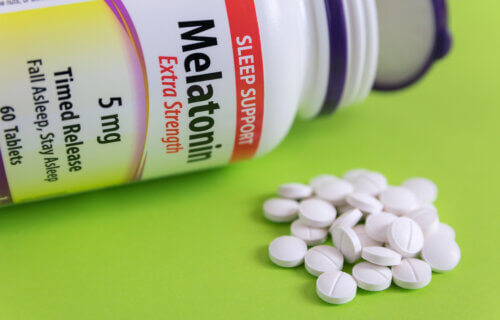BOULDER, Colo. — The increasing use of the sleep hormone melatonin among young children is causing concern among doctors. New research reveals that nearly 20 percent of school-aged children and preteens in the United States are now using melatonin for sleep, including many preschoolers. Study authors from the University of Colorado Boulder are highlighting serious concerns regarding the safety and understanding of these products.
“We hope this paper raises awareness for parents and clinicians, and sounds the alarm for the scientific community,” says lead author Lauren Hartstein, PhD, a postdoctoral fellow in the Sleep and Development Lab at CU Boulder, in a university release. “We are not saying that melatonin is necessarily harmful to children. But much more research needs to be done before we can state with confidence that it is safe for kids to be taking long-term.”
Melatonin is naturally produced in the brain to signal the body’s readiness for sleep. In several countries, it’s classified as a drug and requires a prescription, but in the U.S., it is readily available over the counter, often in child-friendly gummy forms.
To gauge current usage, researchers surveyed about 1,000 parents in early 2023. They found that 18.5 percent of children between five and nine and 19.4 percent of preteens 10 to 13 used melatonin in the past 30 days. Notably, nearly six percent of preschoolers under the age of four also used melatonin, typically for about a year.
A significant risk with these over-the-counter gummies is unreliable labeling. An analysis of 25 melatonin gummy products revealed that 22 had different melatonin amounts than stated, with one containing triple the labeled amount. Moreover, some supplements contained other worrisome substances like serotonin.

“All of a sudden, in 2022, we started noticing a lot of parents telling us that their healthy child was regularly taking melatonin,” adds Hartstein, who studies how environmental cues, including light at night, impact children’s sleep quality and melatonin production.
“Parents may not actually know what they are giving to their children when administering these supplements,” the researcher continues.
It could send a message that, if you have trouble sleeping, a pill is the answer.
“If this many kids are taking melatonin, that suggests there are a lot of underlying sleep issues out there that need to be addressed. Addressing the symptom doesn’t necessarily address the cause.”
Additional worries include the potential impact of melatonin on the timing of puberty in developing children and the risk of overdose due to the supplement’s candy-like appearance. Reports to poison control centers about melatonin ingestion increased by 530 percent from 2012 to 2021, mainly involving children under five.
Dr. Julie Boergers, the study’s co-author, notes that while melatonin can be a useful short-term aid under medical supervision, particularly for youth with autism or severe sleep issues, unsupervised use poses significant risks.
“But it is almost never a first-line treatment,” Boergers says, noting that she often recommends that families look to behavioral changes first and use melatonin only as a short-term solution. “Although it’s typically well-tolerated, whenever we’re using any kind of medication or supplement in a young, developing body we want to exercise caution.”
South West News Service writer Isobel Williams contributed to this report.
This study is published in JAMA Pediatrics.
You might also be interested in:
- Sleep supplement melatonin can also keep fruit and vegetables fresh longer
- Melatonin blues: Parents in this state have most trouble with bedtime during pandemic
- Sleepless nights? Melatonin supplements may wreak havoc on gut health

